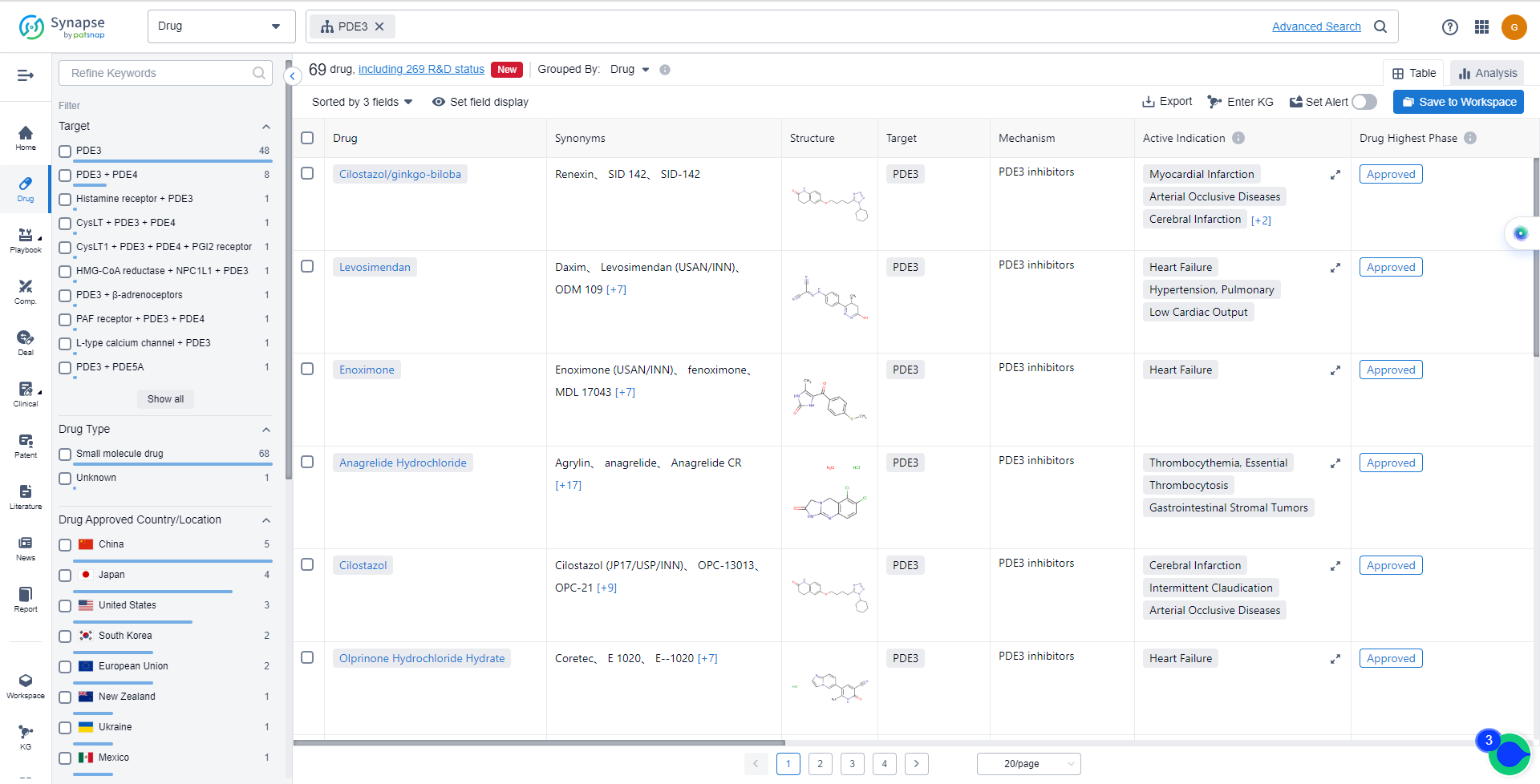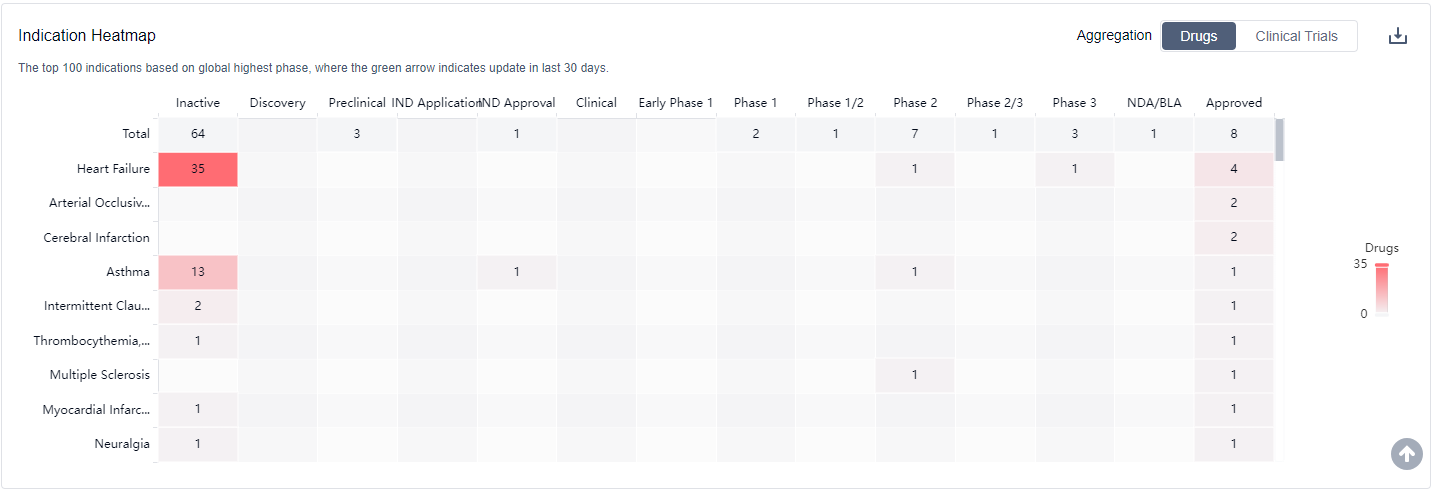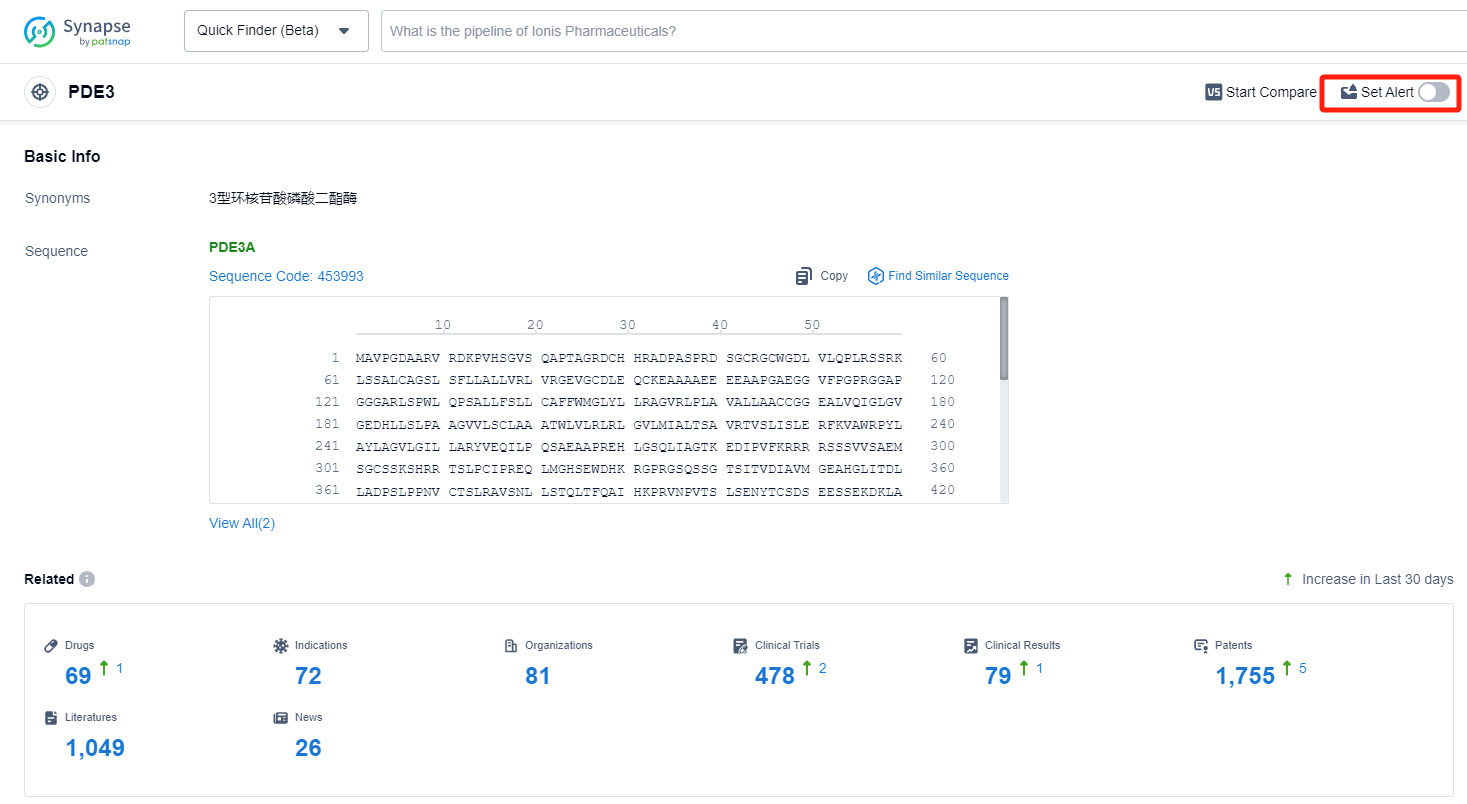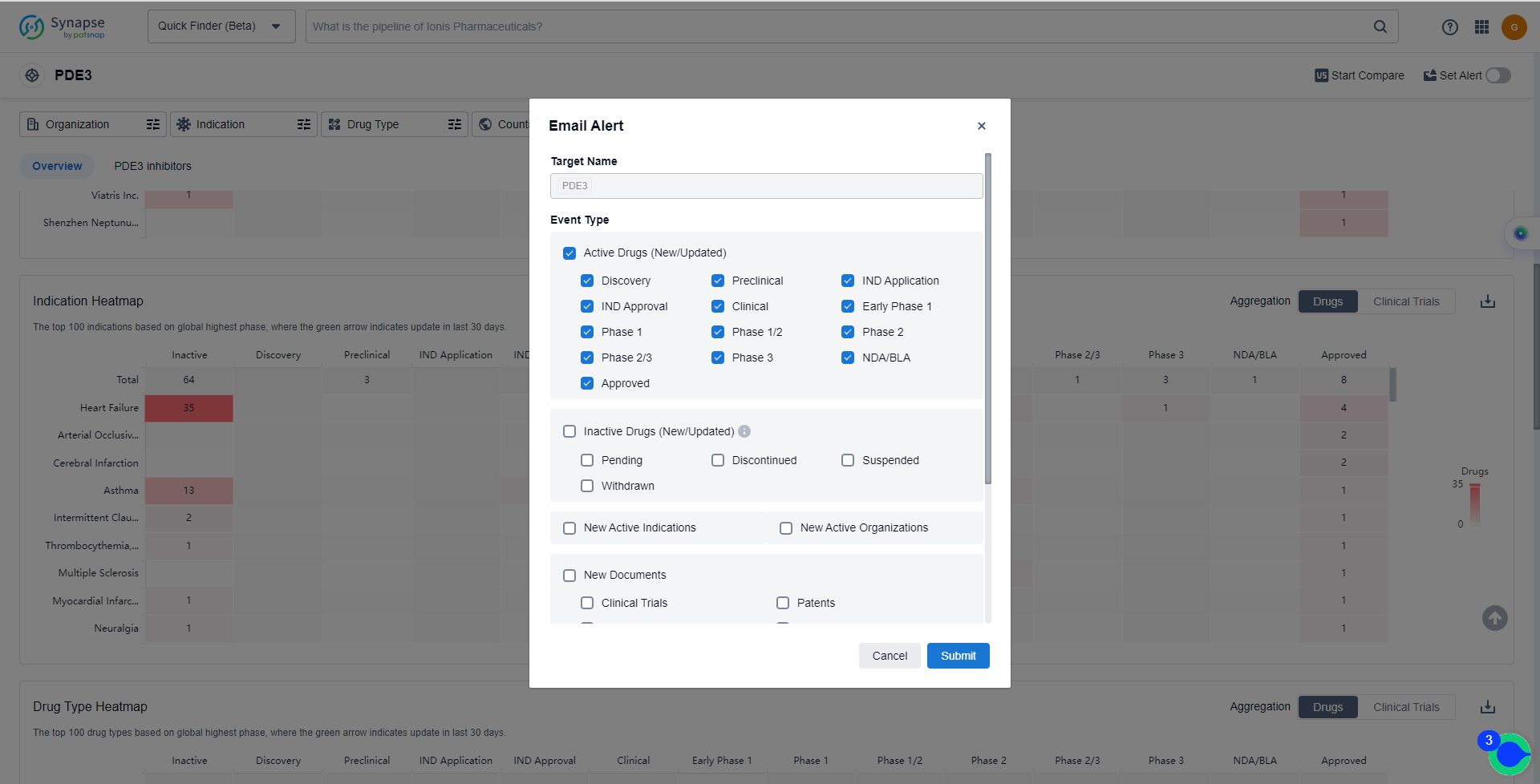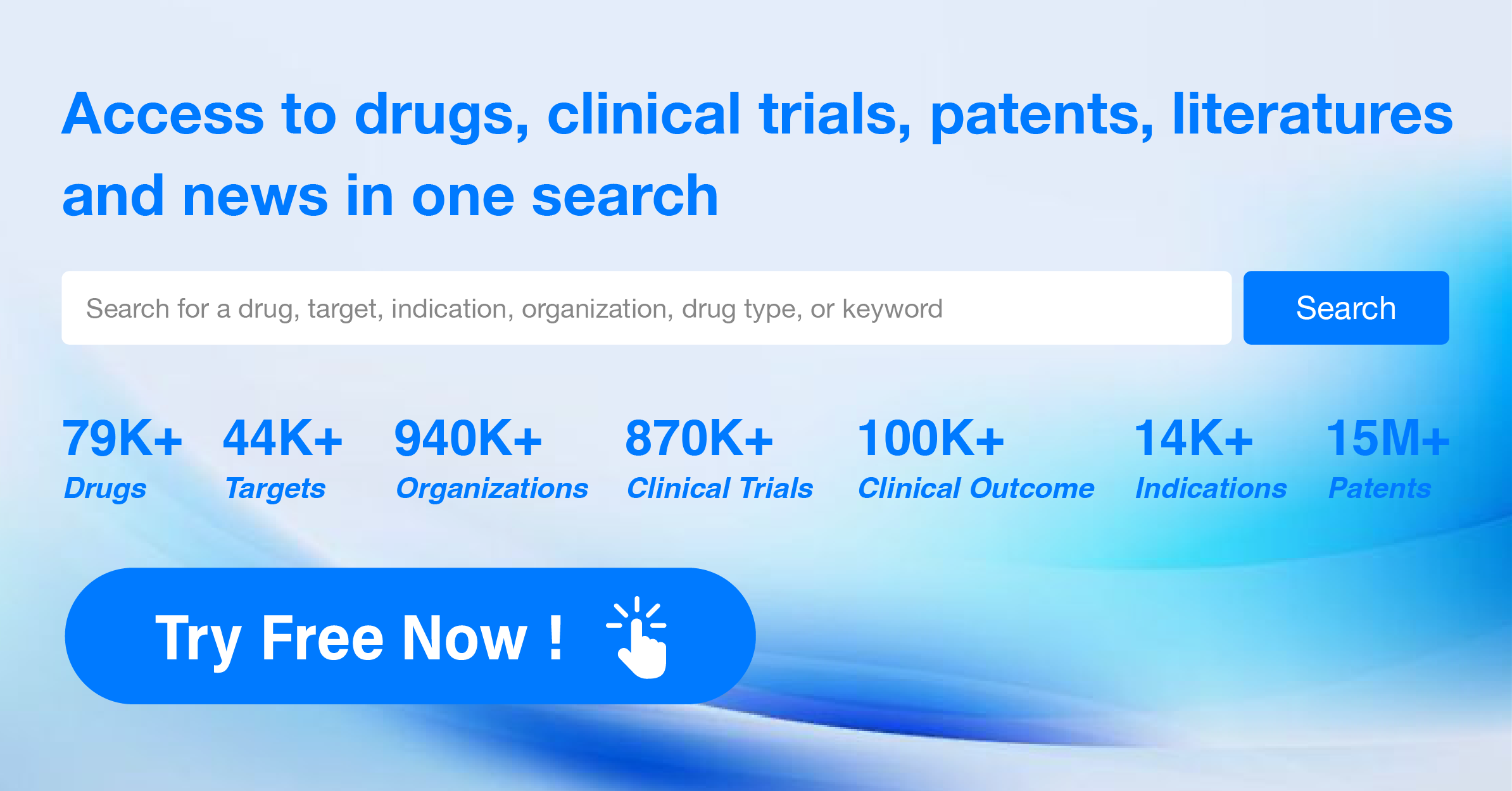What are PDE3 inhibitors and how do you quickly get the latest development progress?
PDE3, or phosphodiesterase 3, is an enzyme found in the human body that plays a crucial role in regulating cellular signaling pathways. Specifically, PDE3 is responsible for breaking down cyclic adenosine monophosphate (cAMP) and cyclic guanosine monophosphate (cGMP), which are important secondary messengers involved in various physiological processes. By inhibiting PDE3 activity, certain medications can increase the levels of cAMP and cGMP, leading to vasodilation, increased contractility of cardiac muscles, and platelet aggregation inhibition. This makes PDE3 an important target for pharmaceutical interventions aimed at treating cardiovascular diseases, such as heart failure and hypertension.
The future of PDE3 inhibitors is promising. An agent that selectively inhibits sarcoplasmic reticulum-associated PDE3A-136 may help to preserve intracellular Ca2+ cycling and contractility in patients with dilated cardiomyopathy taking β-adrenergic receptor agonists. This may reduce arrhythmogenic effects attributable to increases in cytosolic cAMP content. Furthermore, given the promising results in preclinical models, numerous clinical trials have evaluated the therapeutic efficacy of PDE3 inhibitors against depression in humans. Therefore, the development of PDE3 inhibitors presents opportunities for innovation and competition in the pharmaceutical industry.
The analysis of the target PDE3 reveals a competitive landscape with multiple companies actively involved in research and development. The highest stage of development is the "Approved" phase, indicating successful drug development in various indications. Small molecule drugs are progressing rapidly, with a significant number of approved and inactive drugs. China, Japan, the United States, and the European Union are leading in terms of drug development under the target PDE3. The future development of the target PDE3 is promising, with ongoing research and development efforts by various companies and countries/locations.
How do they work?
PDE3 inhibitors are a type of drug that target and inhibit the enzyme phosphodiesterase 3 (PDE3). Phosphodiesterases are a group of enzymes that play a crucial role in regulating cellular signaling pathways by breaking down cyclic nucleotides, specifically cyclic adenosine monophosphate (cAMP) and cyclic guanosine monophosphate (cGMP).
In the context of biomedicine, PDE3 inhibitors are primarily used as cardiovascular drugs. They work by blocking the activity of PDE3, which leads to increased levels of cAMP and cGMP in cells. This, in turn, promotes vasodilation (relaxation of blood vessels), inhibits platelet aggregation (clumping of blood platelets), and reduces smooth muscle cell proliferation. These effects contribute to the treatment of conditions such as heart failure, angina (chest pain), and peripheral vascular disease.
By inhibiting PDE3, these drugs enhance the effects of the cyclic nucleotides, which are important secondary messengers involved in various cellular processes. The increased levels of cAMP and cGMP can have beneficial effects on cardiac function, blood flow, and overall cardiovascular health.
It's worth noting that PDE3 inhibitors may have side effects, including increased heart rate, arrhythmias, and potential interactions with other medications. Therefore, their use should be carefully monitored and prescribed by healthcare professionals.
List of PDE3 Inhibitors
The currently marketed PDE3 inhibitors include:
- Cilostazol/ginkgo-biloba
- Levosimendan
- Enoximone
- Anagrelide Hydrochloride
- Cilostazol
- Olprinone Hydrochloride Hydrate
- Ibudilast
- Inamrinone Lactate
- Ensifentrine
- Cilostazol/Decanol
For more information, please click on the image below.
What are PDE3 inhibitors used for?
PDE3 inhibitors are under investigation for indications that include heart failure, angina (chest pain), and peripheral vascular disease. For more information, please click on the image below to log in and search.
How to obtain the latest development progress of PDE3 inhibitors?
In the Synapse database, you can keep abreast of the latest research and development advances of PDE3 inhibitors anywhere and anytime, daily or weekly, through the "Set Alert" function. Click on the image below to embark on a brand new journey of drug discovery!
